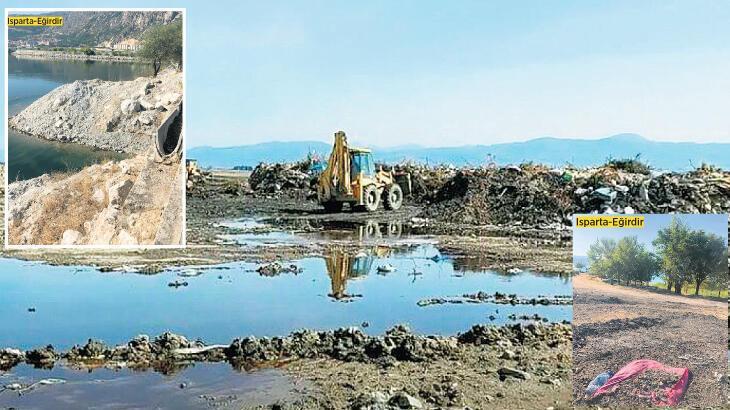
Turkey’s wetlands, home to hundreds of species and protected by the Ramsar Convention, are in danger of extinction due to the illegal dumping of waste collected from excavation sites into wetlands, according to environmental experts.
Experts say that excavation and waste disposal to the wetlands have increased during the pandemic, especially on the days of curfews implemented to limit the spread of the new COVID-19.
Warning that the value of water should be taken into account, experts drew attention to the need to put an end to waste from excavation sites from being dumped into wetlands.
Some environmental organizations launched a campaign last week when it was revealed that the Akçay Marshes, one of the important wetland ecosystems of the northern Aegean region, among several others, were being used as an excavation waste disposal site by Balıkesir Municipality for about a year.
In a joint statement they made, 37 environmental organizations asked for the area to be rehabilitated by urgently stopping the dumping of rubble into reeds that hosts 30 percent of 487 bird species, critically endangered eels and hundreds of plant species recorded in the country.
The Balıkesir Municipality’s use of Akçay Marshes as an excavation waste disposal area is against both the law and the Ramsar Convention to which Turkey is a party, according to the statement.
Speaking to daily Milliyet, Osman Erdem, the head of the Sensitive Ecosystems and Protected Areas Department and member of the Nature Research Association, criticized local authorities, stating that the municipalities have dumped waste materials from excavations into wetlands when they should have been protected under the Ramsar Convention instead.
“It was decided that wetlands cannot be filled in any way, and land cannot be gained through drying with a regulation prepared. But unfortunately, they continue to dry up,” Erdem said, adding that similar examples are seen in many wetlands in the country.
Stating that it is prohibited to dump even a piece of litter into wetlands, Erol Keser, an academic and lake expert, pointed out that drying wetlands would have more dangerous consequences than greenhouse gas emissions.
He also drew attention to the fact that waste dumped in the wetlands poses a great risk for the ecosystem of the region, especially for migratory birds that come to the basins.
“We see that such waste is disposed of more intensely, especially on Saturdays and Sundays when there is a curfew. There are a lot of complaints about this,” Keser noted.
The Ramsar Convention is an international treaty for the conservation and sustainable use of wetlands.
The convention entered into force in Turkey on Nov. 13, 1994.
The country currently has 14 sites designated as the Ramsar Sites, with a surface area of 184,487 hectares.